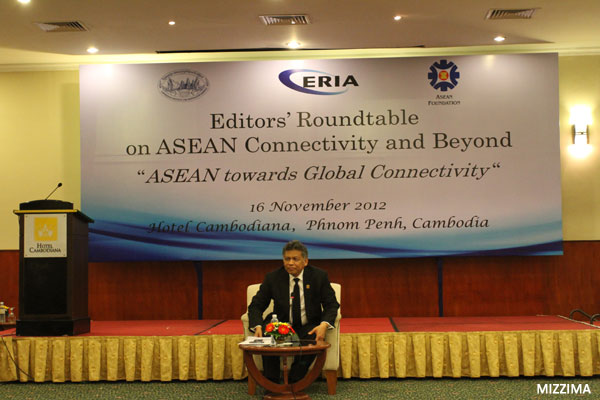The role of the Association of Southeast Asian Nations (ASEAN) in the affairs of the Rohingya minority in Burma must be one of humanitarian engagement and consistency, said Dr. Surin Pitsuwan, the General Secretary of ASEAN, in response to a question at the ASEAN Summit Editors' Roundtable on Friday in Phnom Penh.

“There are other issues that ASEAN cannot expect to be involved in more effectively—the issue of citizenship; and if a government of a country says ‘These people are not [our] citizens,’ I don’t think it’s ASEAN’s role to go in and say, ‘You change your law! You change your Constitution!’ Accept these people as your citizens!’”
Surin said that such a demand would have to come from an institution higher than ASEAN, such as the UN Human Rights Council, and reiterated that ASEAN should only be concerned with humanitarian engagement.
The Rohingyas are not officially recognized as citizens in Burma, due in part to the 1982 Citizenship Law which stipulates that the country has 135 ethnic groups—the Rohingya not being one of them—which can trace their roots in Burma to before 1823—the year of the First Anglo-Burmese war.
The ASEAN General Secretary noted that the months ahead were the time when the seas were calm and the season that Rohingya and other migrants would often take to the high seas.
On Thursday, Burmese pro-democracy icon Aung San Suu Kyi called the sectarian violence in Rakhine State an “international tragedy” and pointed a finger at Bangladesh, saying the problem was exacerbated by illegal immigration.
The Rohingya, who make up the vast majority of those displaced in the sectarian violence, are described by the UN as among the world's most persecuted minorities.


